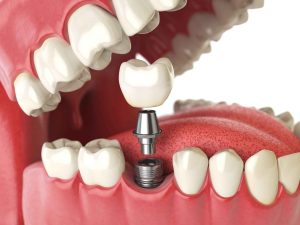Suddenly, when you bite into your favourite sandwich, there’s a crunch. It’s not the good sort. When a tooth splits, a wave of anguish ensues. Emergency dental care can be stressful and can happen at any time. Nonetheless, being aware of what usually occurs during such an incident lessens the anxiety. Whether it’s an unexpected virus or a knocked-out tooth, a little planning can help you handle the situation effectively and calmly.
Understanding Dental Emergencies
What Counts as a Dental Emergency?
Dental emergencies aren’t just about dramatic moments like broken teeth from accidents. Some issues may seem minor, but still need urgent attention. An emergency dentist in Portsmouth can help treat a range of concerns before they worsen. Here are some common types:
https://insidetechie.xceltec.in/wp-content/uploads/2025/04/Severe-toothache-Especially-if-it-disrupts-sleep-or-daily-activities_11zon-768×512.jpg
Severe toothache: Especially if it disrupts sleep or daily activities
Chipped or cracked teeth: Particularly with exposed nerves or bleeding
Knocked-out teeth: Timing is everything in saving the tooth
Lost fillings or crowns: They may expose sensitive tissue
Abscesses and infections: Can spread if not treated quickly
Bleeding gums or trauma to the mouth: Especially if persistent or from an accident
If it’s causing pain, bleeding, or swelling, it’s best treated as an emergency.
What Actually Happens When You Call an Emergency Dentist?
Initial Phone Call
When you ring an emergency dental clinic, you won’t be judged — you’ll be helped. A receptionist or dental nurse will ask questions to understand your symptoms. Based on your answers, they’ll likely slot you in for the earliest available appointment, often the same day.
You might be asked:
When did the pain or issue begin?
Have you taken any pain relief?
Are you experiencing swelling or fever?
Was there trauma involved?
On Arrival at the Clinic
Once you’re at the clinic, things move quickly. After a brief check-in, a dentist assesses the issue. They’ll likely ask about your dental history, current medication, and general health.
Common Treatments During a Dental Emergency
Pain Relief and Stabilisation
First and foremost, the dentist’s priority is to get you out of pain. That might involve:
Local anaesthetic to numb the area
Temporary dressings or fillings
Draining infections
Prescribing antibiotics
This stabilisation phase makes you feel human again. Once the pain is under control, a longer-term treatment plan can be discussed.
Restorative Treatments
Depending on the cause, here’s what might happen next:
Chipped tooth: Smoothed or filled
Knocked-out tooth: Reinserted if within the “golden hour”
Lost crown: Recemented if intact or replaced
Abscess: Drained, followed by root canal or extraction
Fractured tooth: Bonded, crowned, or extracted
This is often when the conversation turns to options like a dental implant Portsmouth residents commonly choose for a permanent solution, especially for missing teeth.
The Emotional Side of Dental Emergencies
It’s not just about physical discomfort. Dental emergencies can be emotional. The sudden onset of pain, fear of cost, and even embarrassment about dental appearance can hit hard.
According to a British Dental Journal survey, over one in three people in the UK suffer from dental anxiety. It’s acceptable to be anxious. A competent emergency dentist will utilise relaxing tactics, prioritise immediate comfort, and provide comprehensive explanations of everything.
When fear strikes, having access to a Portsmouth emergency dentist can make all the difference. It’s more comforting than you may think to have someone around, knowledgeable, and composed during a crisis.
Cost Concerns and Aftercare
How Much Will It Cost?
This depends on the treatment required and whether you’re going through the NHS or privately. For private care:
Treatment Type
Estimated Cost (Private UK)
Emergency consultation
£50 – £150
Tooth extraction
£75 – £300
Temporary filling
£90 – £150
Root canal (front tooth)
£200 – £500+
Prices vary based on complexity and region. It’s always best to confirm during the call.
Some clinics offer payment plans or prioritise temporary relief to buy time until you’re financially ready for more extensive treatment, such as a dental implant Portsmouth patients might later choose.
Aftercare Advice
Once emergency treatment is completed, you’ll usually be given advice like:
Avoid chewing on the treated side
Take prescribed medication as directed
Use warm saltwater rinses
Follow-up for permanent treatment
Aftercare is where a dental emergency becomes part of a broader dental health plan. It’s your chance to prevent future issues or complete treatments you’ve postponed.
When Seconds Matter: Knocked-Out Teeth
A knocked-out tooth might sound dramatic, but quick action can mean the difference between keeping or losing it.
Here’s what to do:
Take it by the crown rather than the root.
Gently rinse with saline or milk (not tap water).
If at all feasible, try to put it back in. If not, keep it wet with milk or saliva.
Arrive at a dentist’s emergency room in 30 to 60 minutes.
Having a reliable emergency dentist in Portsmouth on speed dial could literally save your smile.

Dental Implants After an Emergency
Sometimes, a damaged or lost tooth can’t be saved. That’s when many people consider more permanent solutions like implants.
A dental implant Portsmouth professionals offer involves a titanium post inserted into the jawbone, acting as an artificial root.A crown that closely resembles a natural tooth is then placed on top of it.
Benefits include:
Permanent, fixed solution
Looks and feels natural
Helps prevent bone loss
Doesn’t affect neighbouring teeth
Implants can take a few months from start to finish, but offer long-term peace of mind, especially after a traumatic emergency.
Preventing Future Dental Emergencies
While not all emergencies are avoidable, many are. Here’s how to reduce your chances:
Attend regular check-ups and cleans
Wear a mouthguard if you play contact sports
Avoid chewing ice, popcorn kernels, or pen tips
Don’t ignore minor issues — they rarely fix themselves
Stick to your dental treatment plans
Often, the most serious emergencies arise from problems that started small but were left untreated.
Conclusion
Dental emergencies can be overwhelming, but knowing what to expect takes away much of the fear. It’s important to have a trustworthy emergency dentist on hand in case of unexpected pain or knocked-out teeth. If you’re in need of long-term solutions, options like a dental implant can restore both function and confidence. Whether it’s a quick fix or a more involved procedure, professionals like those at EDP provide care that helps you feel comfortable and in control, even when the unexpected happens

